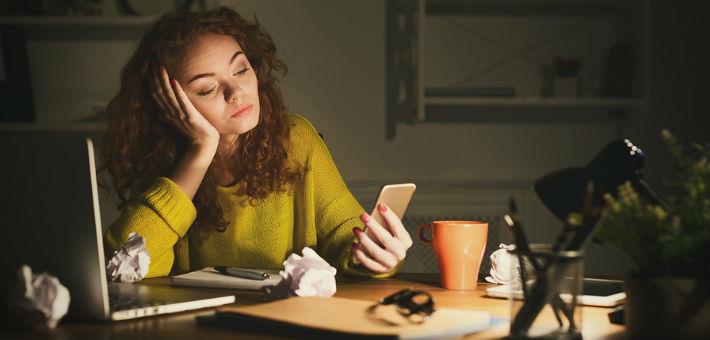
Did You Sleep Well? The Impact of Media Multitasking on Teens’ Sleep Problems
Due to the 24/7 access to media, teens engage in media multitasking more than ever before. They often use multiple media devices simultaneously or switch rapidly between media on a single device. Critics are concerned that media multitasking has a negative impact on teens' sleep and, consequently, on their health and school performance. A study in Computers in Human Behavior shows that, over time, media multitasking indeed leads to sleep problems among teens, but only among girls and teens who are in the first year of secondary school (12-13 years olds).
Take aways
- Over time, media multitasking leads to sleep problems among teens, but only among girls and teens who are in the first year of secondary school.
- Parents and teachers should try to prevent habitual media multitasking among teens (for example through clear and consistent rules about media and smartphone use) as it could lead to sleep problems.
Study information
The question?
How is media multitasking related to sleep problems among teens over time?
Who?
1,443 teens of seven schools in the Netherlands (mean age: 13 years; 49% girls)
Where?
The Netherlands
How?
In order to investigate the relation between media multitasking and teens’ sleep over time, data was collected at three time points: in November 2014, March 2015, and June 2015. Participants were asked to fill out a questionnaire containing questions about their demographics, their media multitasking (e.g. “While watching TV, how often do you use social network sites at the same time?”) and about whether they experienced sleep problems (e.g. ”I am a person who does not get enough sleep”).
Facts and findings
- Teens who engaged in media multitasking more often, also experienced more sleep problems.
- Over time, media multitasking was unrelated to sleep problems among teens, except for girls and 7th graders (first year of secondary school), for whom media multitasking did cause more sleep problems over time.
- Critical note: This study does not tell us how certain characteristics of media multitasking, such as the time of the day teens multitask or with which type of media, play a role in the relationship between multitasking and sleep. For example, it remains unclear if teens who media multitask during the morning also experience sleep problems or whether this effect only exists for those who primarily multitask in the evening.